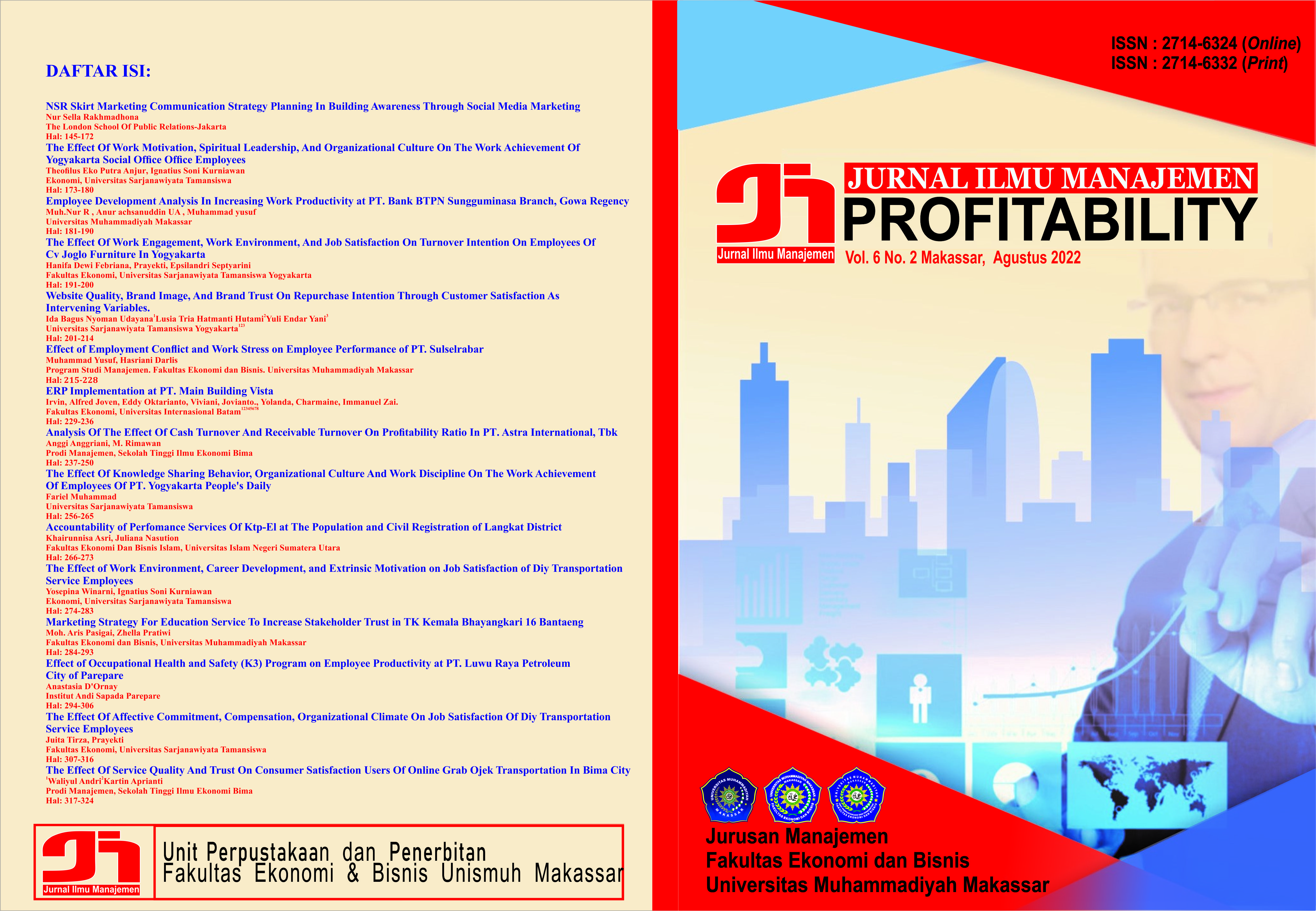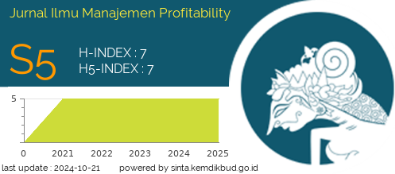Community Perceptions on Transparency and Accountability In Village Fund Management: A Case Study of Lassang Barat Village, Takalar Regency
DOI: https://doi.org/10.26618/9xtxbt52
Village Fund Allocation, Transparency, Accountability, Community Perception, Rural Governance
Abstract
This study analyzes community perceptions of transparency and accountability in the management of Village Fund Allocation (Alokasi Dana Desa/ADD) in Lassang Barat Village, Polombangkeng Utara Subdistrict, Takalar Regency. The Village Fund program is designed to enhance rural welfare and quality of life through participatory governance and accountable financial management. Using a qualitative descriptive approach, data were collected through interviews, observations, and documentation involving village officials, community members, and other relevant stakeholders. The analysis focused on five stages of ADD management: planning, implementation, administration, reporting, and accountability. The findings indicate that in Lassang Barat Village, ADD management is generally perceived positively, as planning and implementation processes involve active community participation and compliance with established procedures. However, challenges persist in other contexts, including limited understanding of accounting principles, weak adherence to regional regulations, and inadequate human resource capacity. These issues reduce the overall effectiveness of ADD management and highlight the need for technical assistance and continuous capacity development. The study concludes that while the ADD program contributes positively to community development, inconsistencies in implementation and regulatory compliance remain. Strengthening capacity building, promoting community engagement, and enhancing monitoring mechanisms are recommended to improve transparency and accountability in village financial governance.
References
Adisasmita, Rahardjo. 2011. Pengelolaan Pendapatan dan Anggaran Daerah. Yogyakarta: Graha Ilmu.
Badang Pengembangan dan Pembinaan Bahasa. 2023. Kamus Besar Bahasa Indonesia (KBBI) edisi VI Online.
Faridah dan Suryono, B. 2015. Transparansi dan Akuntabilitas Pemerintah Desa dalam Pengelolaan Anggaran Pendapatan Belanja Desa (APBDes). Jurnal Ilmu & Riset Akuntansi. Vol. 4 No.5. 27 Mei 2016.
Hanifah, S. I., S. Praptoyo. 2015. Akuntabilitas dan Transparansi Pertanggungjawaban Anggaran Pendapatan Belanja Desa (APBDes). Jurnal Ilmu & Riset Akuntansi Vol. 4 No. 8. 13 Juni 2016.
Harahap, Nursapiah. 2020. Penelitian kualitatif. Sumatera Utara: Wal Ashri Publishing.
Hardani, dkk. 2020. Metode Penelitian Kualitatif dan Kuantitatif. Yogyakarta: Pustaka Ilmu.
Icuk, Rangga Bawono dan Erwin Setyadi. 2019. Panduan Penggunaan dan Pengelolaan Dana Desa. Jakarta: PT Gramedia Widiasarana Indonesia.
Kurniasari, Maya Andayani. 2017. Persepsi Masyarakat Terhadap Akuntabilitas dan Transparansi Perencanaan dan Pelaksanaan Anggaran Pendapatan dan Belanja Desa (Apbdesa) (Studi di Desa Susukan Kecamatan Susukan Kabupaten Semarang). Skripsi. Universitas Kristen Satya Wacana.
Mustofa, A. I. 2012. Pengaruh Penyajian dan Aksesbilitas Laporan Keuangan terhadap Akuntabilitas Pengelolaan Keuangan Kabupaten Pemalang. Accounting Analysis Journal. Vol.1 No.1.
Nila, Arum Cahyati. 2021. Pengaruh Kompetensi Sumber Daya Manusia, Partisipasi Penganggaran, dan Pemanfaatan Teknologi Informasi terhadap Akuntabilitas Pengelolaan Dana Desa: (Studi Kasus di Desa Se Kecamatan Tulakan Kabupaten Pacitan). Skripsi Thesis, Universitas Muhammadiyah Ponorogo.
Nordiawan, D. 2006. Akuntansi Sektor Publik. Jakarta: Salemba Empat.
Nurlailah, Syamsul, Arif Rahman. 2020. Mengukur Transparansi Pengelolaan Keuangan Desa: Studi Kasus pada Desa-Desa di Kabupaten Sigi. Jurnal Studi Akuntansi dan Keuangan vol.3, No. 2.
Panirikan, Sumria. 2021. Analisis Pengelolaan Dana Desa terhadap Peningkatan Pembangunan Sumber Daya Desa Raku Kecamatan Tabukan Utara. Skripsi. Institut Agama Islam Negeri (IAIN) Manado, Fakultas Ekonomi dan Bisnis Islam.
Peraturan Menteri Dalam Negeri Republik Indonesia No. 37 Tahun 2007
Permendesa, PDT, dan Transmigrasi RI No.21 Tahun 2016 tentang Penetapan Prioritas Penggunaan Dana Desa Tahun 2015.
Puansah, Irman, dan Soritua Ritonga. 2021. Persepsi Masyarakat terhadap Transparansi Penggunaan Dana Desa di Kecamatan Padangsidumpuan Tenggara. JUSTITIA: Jurnal Ilmu Hukum dan Humaniora. Vol. 8, No. 3. ISSN: 2579-9298.
Rakhmat, D. J. 2011. Psikologi Komunikasi (2 ed.), (T. Surjana, Ed.). Bandung: PT Remaja Rosdakarya.
Rizki, Wilda. 2023. Analisis Persepsi Masyarakat terhadap Pertambangan Emas Tanpa Izin dan Dampaknya di Kecamatan Tebo Ulu. S1 Thesis, Universitas Jambi.
Rospa. 2017. Persepsi Masyarakat tentang Penerapan Asas Transparansi dalam Pengelolaan Anggaran Dana Desa (Studi Kasus Desa Pekalobean Kecamatan Anggeraa Kabupaten Enrekang). Skripsi. Universitas Muhammadiyah Makassar, Fakultas Ekonomi dan Bisnis.
Sugiyono. 2017. Metode Penelitian kombinasi (mixed methods). Bandung, CV. ALfabeta.
Sugiyono. 2018. Metodologi Penelitian Pendidikan: Pendekatan Kuantitatif, Kualitatif, dan R&D. Bandung: Alfabetta.
Sulistiyani, A. T. 2011. Memahami Good Governance: Dalam Perspektif Sumber Daya Manusia. Yogyakarta: Gava Media.
Suranto. 2011. Komunikasi Internasional. Yogyakarta: Graha Ilmu.
Syamsul. 2020. Potret Transparansi Pengelolaan Keuangan Daerah (TPKD) di Indonesia. Media Riset Akuntansi, Auditing & Informasi, Vol. 20, No. 2.
Undang-undang No.6 Tahun 2014 tentang Desa
Walgito, Bimo. 2005. Pengantar Psikologi Umum. Yogyakarta: Andi offset.
Downloads
Published
Issue
Section
License
Authors who publish with Jurnal Ilmu Manajemen Profitability agree to the following terms:
Copyright of the articles remains with the authors.
Authors grant the journal the right of first publication with the work simultaneously licensed under a Creative Commons Attribution-NonCommercial 4.0 International License (CC BY-NC 4.0). This license allows others to:
Share (copy and redistribute the material in any medium or format)
Adapt (remix, transform, and build upon the material)
as long as they give appropriate credit to the original author(s) and source, provide a link to the license, and indicate if changes were made. Non-commercial use only.
Authors are permitted to:
Distribute their published work (e.g., post it to an institutional repository or publish it in a book), with an acknowledgment of its initial publication in this journal.
Enter into separate, additional contractual arrangements for the non-exclusive distribution of the journal’s published version of the work (e.g., post it to a class website or institutional archive).
For permissions to use the content published in this journal beyond the scope of the license (e.g., commercial purposes), please contact the editorial office via the journal email.
License Details:
This journal is licensed under a Creative Commons Attribution-NonCommercial 4.0 International License (CC BY-NC 4.0).












